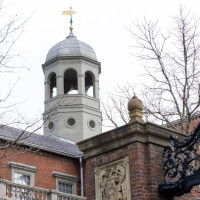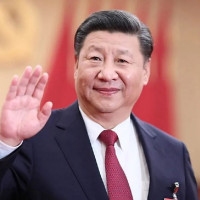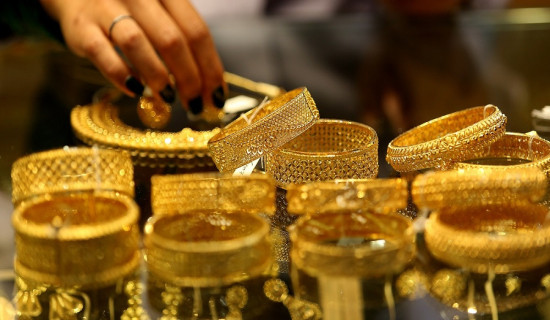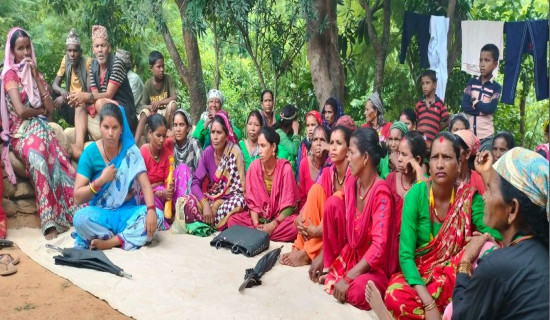- Thursday, 17 April 2025
Countries brainstorm over how to cope with the trade war
Bangkok, Apr. 9: U.S. President Donald Trump and China sparred over tariff hikes and other retaliatory moves on Tuesday, as governments elsewhere were brainstorming strategies to cope with the trade war between the global economic giants.
China said it will "fight to the end" and take countermeasures against the United States to safeguard its own interests after President Donald Trump threatened an additional 50% tariff on Chinese imports in retaliation for Beijing's backlash against the 34% tariffs he ordered on his April 2 "Liberation Day."
"The U.S. threat to escalate tariffs on China is a mistake on top of a mistake and once again exposes the blackmailing nature of the US. China will never accept this," the Commerce Ministry said in a statement read on state-run broadcaster CCTV.
When asked about the possibility of talks between Washington and Beijing, Chinese Foreign Ministry spokesperson Lin Jian said "I think what the US has done doesn't reflect a willingness for sincere dialogue. If the US really wants to engage in dialogue, it should adopt an attitude of equality, mutual respect and mutual benefit."
Meanwhile, Chinese state-run companies were told to help support the country's financial markets after they were hit by massive saves of selling on Monday.
While world markets calmed somewhat after frenzied selling over two trading sessions that wiped out trillions of dollars worth of wealth, leaders in Asia shifted into damage control mode. Japanese Prime Minister Shigeru Ishiba spoke with Trump late Monday and then convened a task force Tuesday to mitigate damage from the 24% U.S. tariffs imposed on Washington's biggest ally in Asia.
Economic Revitalization Minister Ryosei Akazawa was appointed lead trade negotiator and senior officials were dispatched to Washington to follow up on the Ishiba's talk with Trump.
Ishiba told his ministers to do their utmost to get Trump to reconsider and also to mitigate the impact from the U.S. "reciprocal" tariffs, which he said would be a blow to all industries, Chief Cabinet Secretary Yoshimasa Hayashi told reporters.
India's Foreign Minister S. Jaishankar spoke with his U.S. counterpart Marco Rubio late Monday, pitching for an early conclusion of negotiations for a bilateral trade agreement.
India, which faces a 26% tariff on its exports to the U.S., is hoping for concessions as part of the trade deal. A first tranche of the agreement is expected by this fall. (AP)

















